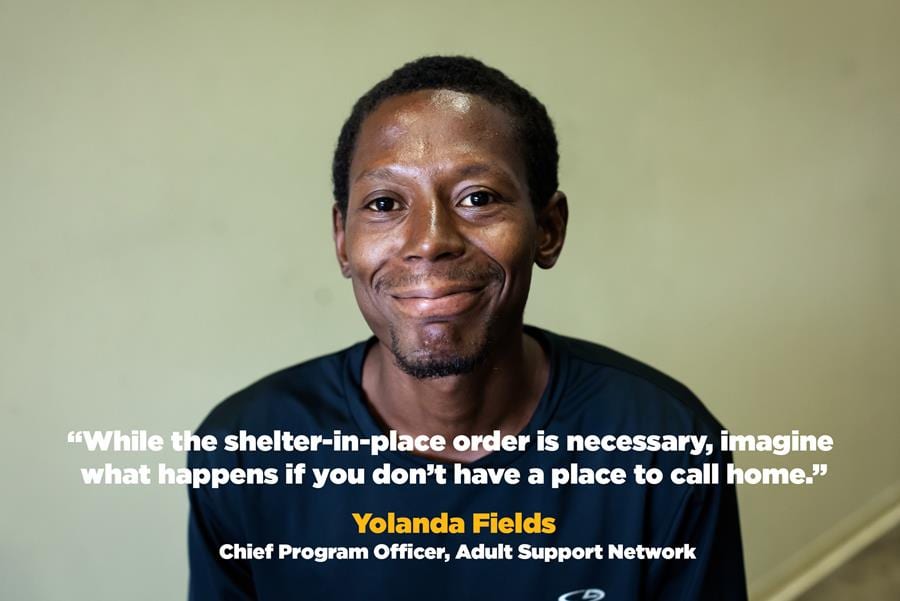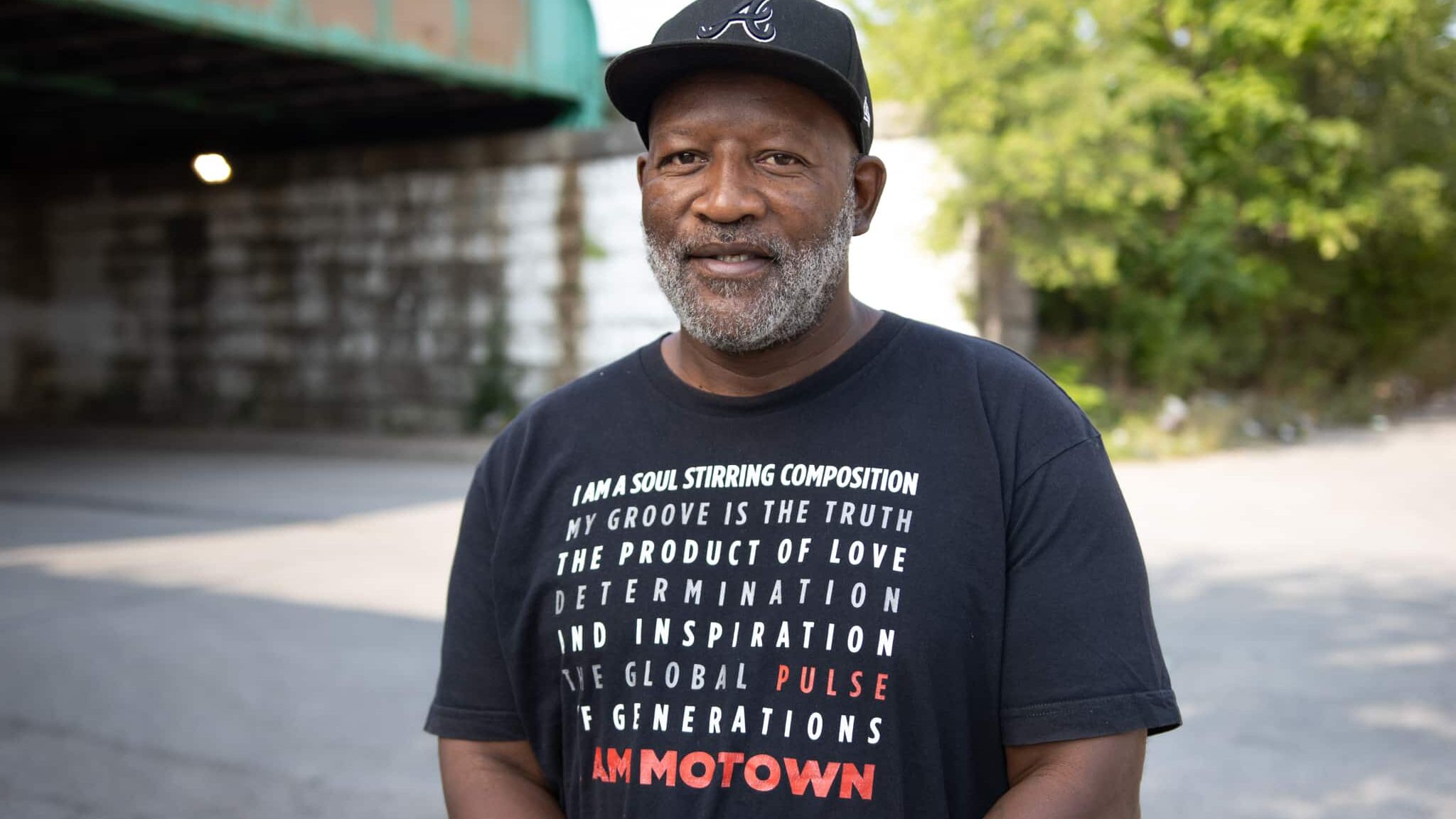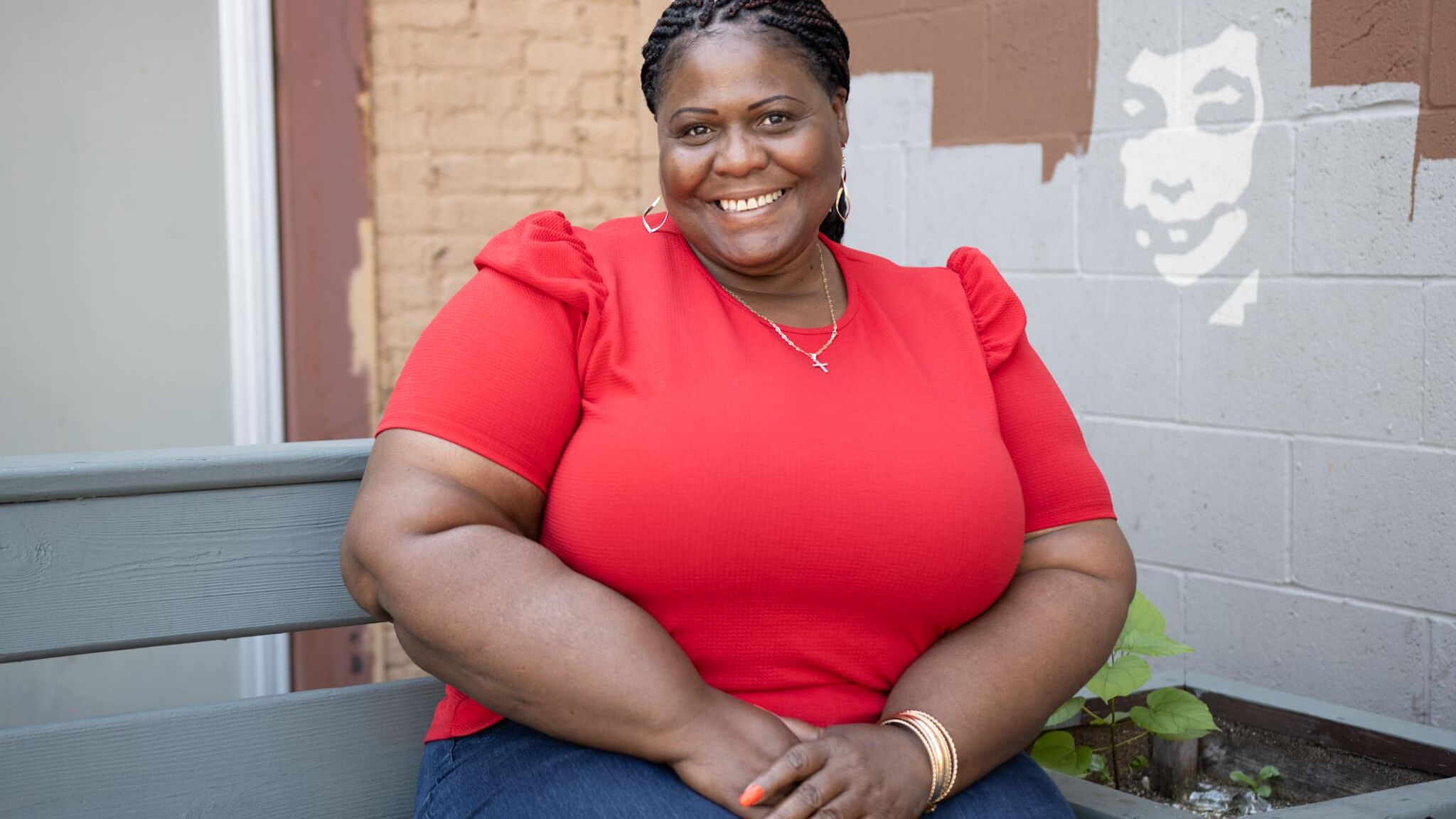While serving those experiencing homelessness, Breakthrough is confronting the challenges of a shelter-in-place order.
For many of us, the shelter-in-place order means working from home and limiting our trips to the grocery store. It’s disruptive and inconvenient, but we know that we have a home in which we can wait it out.
For those experiencing homelessness, this is not the case.
The outbreak of COVID-19 has affirmed the importance of housing and the role it plays in an individual’s health. Without a home, it’s nearly impossible to practice social distancing and proper hygiene. People experiencing homelessness lack the resources to abide by a government-mandated shelter-in-place. The CDC’s recommendation is to go home and isolate. Where should those without a home or who can’t isolate go? “While the shelter-in-place order is necessary, imagine what happens if you don’t have a place to call home,” said Yolanda Fields, Chief Program Officer of Breakthrough’s Adult Support Network.

The city of Chicago has taken steps to limit the spread among the homeless, securing hotel rooms for those who have been exposed or are mildly ill and can’t isolate in homes. However, many people are still occupying communal living spaces in shelters, impeding social distancing practices.
How do you quarantine in a shelter with beds a few feet away from each other? Is it safer to stay outside, where the risk of exposure decreases but where your basic needs aren’t met? Without preventative measures, people living on the margins are at risk.
Breakthrough is working to address these challenges.
At Breakthrough, we are committed to following guidelines from experts and health officials. We are renovating our spaces, encouraging social distancing, and creating spaces that are as home-like and comfortable as possible. We are also purchasing protective gear for staff and residents, utilizing generous donations, and engaging in the hard and meaningful conversations. Click here to learn more about our COVID-19 response.
Every day, we see the discomfort and the toll it’s taking on mental health. Being told to shelter-in-place is uncomfortable for all of us, but so much more so for those without a home. Many individuals living with Breakthrough are prone to experiencing anxiety and depression, like so many of us are around the world.
We see the vulnerability. Many Breakthrough residents are older or have co-occurring disorders. Access to recovery and treatment programs are limited due to shelter-in-place restrictions, increasing the risk of drug and alcohol-related deaths.
We see the challenges staff are encountering. Around the clock, staff is working to meet the needs of guests while following CDC guidelines and trying to ensure their own safety.
As shelters limit capacities and the need for essential services continues to rise, Breakthrough is committed to doing our part to support those experiencing homelessness or crisis.
Author
-

Breakthrough partners with people to build connections, develop skills and open doors of opportunity.
Related Posts
March 22, 2024
Breakthrough Provides Girls Sports and Other Services for Families
Breakthrough provides a safe space for youth to grow, face their fears, and learn to help others. CBS Chicago highlighted our girls sports program and the other ways we partner with families in Garfield Park.
Sports & Fitness AcademyEducation & Youth DevelopmentMediaPress
February 26, 2024
History in the Making: Royce Gives Back to the Community
Royce and the other victim advocates come alongside victims and their families in the most difficult moments.
February 6, 2024
History in the Making: Barbara Shows God’s Love
Case Manager Barbara has walked alongside women experiencing homelessness for 16 years.




